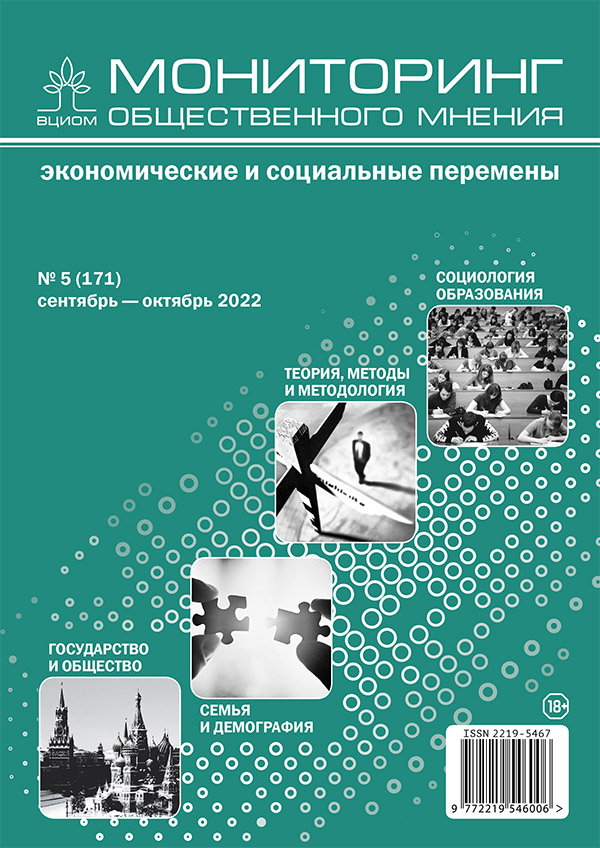Features of the Digital Work Culture of Modern Russian Workers
DOI:
https://doi.org/10.14515/monitoring.2022.5.2246Keywords:
digitalization of labor, work culture, new creativity, alienation, individualization of labor, information and communication technologies, aestheticization of laborAbstract
The article deals with the impact of digitalization on the social and labour sphere. The theoretical part consists of two sections. The first section provides an overview of modern concepts of «digital labour» and its research directions within the social sciences (sociology and economics). In particular, the digitalization of labour, on the one hand, is associated with the development of the digital economy. On the other, it depends on the state and transformation of socio-cultural factors in society. The second section develops a new idea about the transformation of the work culture, with digitalization becoming one of its essential aspects. The digital work culture of modern urban workers primarily characterizes the everyday means and practices of workers’ interaction with equipment and technology. However, the most important consequences are the transformation of modern meanings and values of work. Since the significance of the socio-cultural problems of industrial labour (alienation, separation, inequality, emancipation) is changing radically, new aspects appear associated with a strong demand for new creativity and aesthetics in work. Some modern theoretical ideas about work in the digital age were used to develop a concept and methodology for qualitatively studying the features of the current Russian digital work culture. This part is presented
in the third section of the article. The last fourth section is devoted to the results of the study of everyday labour practices of workers in St. Petersburg. The authors conclude that there are multiple manifestations as well as various consequences of the impact of digitalization on the work of urban workers. However, its impact does not determine the work; instead, its technical aspects are present, stimulating actors to find a balance of power and influence to extract advantages and achievements in this still central area of our life.
Acknowledgements. The article was funded by RFBR and BRFBR, project number 20-511-00011, on the topic “The Effects of Digital Transformation on the Labor Activity of the Urban Population (on the Example of St. Petersburg and Minsk)”.
Downloads
Published
How to Cite
Issue
Section
License
Copyright (c) 2022 Monitoring of Public Opinion: Economic and Social Changes Journal (Public Opinion Monitoring) ISSN 2219-5467

This work is licensed under a Creative Commons Attribution-NonCommercial-ShareAlike 4.0 International License.






